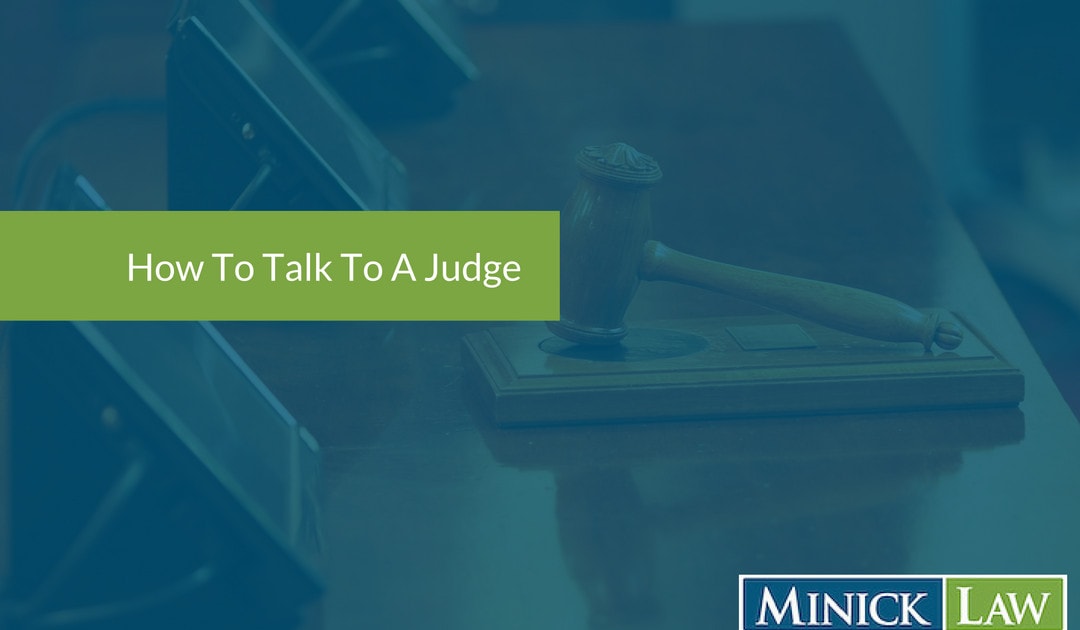Going to court can be an intimidating experience, especially if you’ve never been to court before. You may worry about what to wear, where to sit, and how to talk to a judge in court. These worries can make you dread the entire process.
Luckily, you don’t need to stress yourself out. With a few simple tips, you can relieve some of your fears and be better prepared for your court appearance.
If you want to learn how to talk to a judge in court, then take a few minutes to review these 7 simple tips. Let’s explore some of the basics of how to speak in front of a judge, along with other courtroom etiquette tips.
7 Tips: How To Talk To A Judge In The Courtroom
#1 Always Address the Judge Properly
The very first rule of how to talk to a judge in court is to always address the judge properly. You should refer to the judge as “Your Honor”. Though, this doesn’t apply to clerks or any other official that is not actually a judge.
In some small claims cases, you may appear in front of a clerk. In these situations, you can simply address the clerk by their name. Use the rest of the tips for learning how to speak in front of a judge when speaking in front of a clerk.
If you’re ever in doubt about how to address the person presiding over the case, then follow the cue of the lawyers and other plaintiffs or defendants. Learn how to talk to a judge in court by following others.
#2 Speak Clearly and Directly
Also, if you want to know how to talk to a judge, speak clearly and directly. This means watching your language, avoiding non-verbal gestures, and speaking in a clear voice.
Don’t use slang terms or sarcasm. You may also want to limit your use of hand gestures and other forms of non-verbal communication. Focus on what you’re actually saying.
You should also watch your language. You should never cuss in front of a judge. If you want to know how to talk to a judge in court, you can never use swear words.
(Knowing what to wear to court is also important if you want to make a good impression)
#3 Never Interrupt the Judge
There’s never a reason to interrupt the judge. This is a very important part of learning how to talk to a judge. Always wait for the judge to finish speaking, even if you completely disagree with what he or she is saying. Wait your turn.
#4 Keep Your Explanations Short
You don’t need to provide every little detail. When you’re telling your story or answering the judge, you should keep your explanations short and to the point. If the judge or a lawyer requires additional details, they will ask you to elaborate.
You may also want to prepare a short and concise opening statement. If you’re the plaintiff, then take the time to prepare three short sentences that introduce you and your case.
This short introduction is an important part of learning how to talk to a judge. The first sentence should simply introduce you to the judge. The second sentence is a short summary of why you’re in court and the third sentence should explain what you want from the court case.

#5 Look the Judge in the Eyes
Another tip for helping you learn how to talk to a judge in court is to make eye contact. People that avoid eye contact are often thought to be hiding something. When you’re trying to learn how to talk to a judge, you need to remember to look the judge in the eyes.
Don’t look down at your papers or your feet while addressing the judge. Not only does this make you look unsure of yourself, it’s also disrespectful.
#6 Don’t Create a Scene if Things Don’t Go Your Way
When the judge makes his or her decision, you should respect the judge’s choice. If you disagree with the outcome, then you could discuss further action with your lawyer. The current session is not the time or the place to address your frustration.
So, don’t make a scene if things don’t go your way. Depending on the case, you may be able to appeal the ruling or seek a retrial. Talk to your lawyer and discuss what your next step should be.
#7 Stand Up When the Judge Enters the Room
This final tip is not directly related to learning how to talk to a judge, but it is relevant. When the judge enters the courtroom, you should stand up. You should not sit until the judge advises everyone to sit.
You should also rise when the judge rises to leave the room. Though, if you have any trouble figuring out whether you should stand or sit, the best advice is to follow the example of everyone else in the room.
You don’t need to be scared going into the courtroom. Learning how to talk to a judge in court is not difficult. You should be respectful, listen to what the judge says, and speak up so that everyone can hear you.
Hopefully, you found these tips for how to talk to a judge in court useful. I know that a courtroom can be a scary place. But, it doesn’t have to be. Before you appear in court, review these tips (and these courtroom etiquette tips) again to refresh your memory. Good luck and remember to stay calm!




























